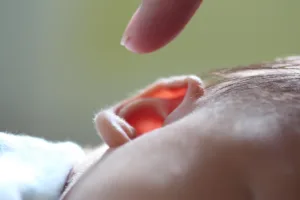
Essential newborn care is the care required by all neonates (first 28 days of life), whether they are born healthy, small, or unwell. It includes appropriate preventive care, routine care, transition, and care of sick and small babies. The success with which mortality and morbidity are prevented will depend to a large extent on the commitment and expertise of the health workers responsible for newborn care.
The birth of a child is usually occasioned by a well-term baby and a healthy mother. In the minority of cases, the pregnancy may be complicated by maternal illness, preterm labour, a difficult delivery, or other problems resulting in babies requiring additional neonatal care at and after birth.
Essential newborn care is just as important in protecting the mother and the unborn child during the pregnancy and labour and requires the availability of adequate and appropriate obstetric services and delivery facilities. Essential newborn care is not covered by this toolkit.
Table of Contents
Essential Newborn Care Tips
Newborn care is essential for healthy and proper development during those first precious moments and days. Your little one needs the best care and immense parental love and attention for steady growth.
For better ensuring essential newborn care, we have researched 10 magical tips for essential newborn care.
1. Immediate Skin-to-Skin Contact

The baby makes skin-to-skin contact, or direct contact, with the mother while she is naked on her chest, exposing only her face. The majority of practitioners have been seen to make skin-to-skin contact within ten minutes after the baby’s birth.
Placing the newborn on the mother’s chest shortly after birth tends to control the child’s breathing, heart rate, and temperature. Immediately following delivery, it promotes bonding and offers emotional security.
2. Feeding

A newborn must be fed 8-12 times in 24 hours, which means you need to breastfeed your baby every 2-3 hours. For the first 5–6 months, breast milk is their best food source. It is essential you nurse them before feeding.
However, in case, for some reason, you are not unable to feed them breast milk, provide them with the formula milk that the doctor would recommend.
3. Burping

Babies often swallow air when they are nursing, which can result in gas and colic. Your baby must burp as a result. It facilitates digestion and air removal. Hold your infant close to your chest and in your arms to induce a burp. Till they burp, give them a gentle pat on the back.
4. How To Hold a Baby In a Proper Way

How to hold a baby must be your top concern after welcoming your new bundle into the world. The steps you can take are as follows:
Because a baby’s immunity is still developing, always wash your hands before handling them. This raises the risk of contracting an infection.
When taking your infant up or putting them down, support their head and neck. Additionally, when carrying them around, always hold their neck in your hands.
Don’t shake your baby if you want to wake them awake. Try tickling their toe or cheek instead.
If they are in a stroller, always remember to buckle up. Don’t toss them into the air either. Their heart may stop as a result of the shock.
5. Bathing Basics

Until the umbilical cord comes off and the circumcision heals, you must always give your child a sponge bath. Well, the healing process takes one to two weeks. Additionally, it is strongly advised to bathe twice or three times every week for the first year. This is due to the fact that newborn skin is extremely sensitive and may get dry if bathed every day.
Some essential newborn care for a baby bathing routine are as follows:
- Wash your items softly and cleanly, cotton is preferred.
- Gentle, unscented shampoos and cleansers that are safe for infants and devoid of parabens.
- Soft-bristled body brush.
- Clean diapers.
- Bathrobes and Towels.
- Wraps for Hair.
- safety precautions and a baby bathtub.
6. Sleep Care

A healthy quantity of sleep is essential for your newborn. Therefore, make sure your kid is warm, cozy, and comfy and that any noise is kept out of the room. It may be a good idea to wrap your infant in a blanket because it simulates the womb. Before you go to bed, make sure your baby’s diapers are clean. They will be able to get a decent night’s sleep as a result. Always keep your hands and feet covered.
You can even massage your baby for a sound sleep. Take a few drops of olive or almond oil and stroke rhythmically all over the body.
7. Temparature Regulation

A newborn’s temperature should be between 96.8°F and 99.5°F (36°C and 37.5°C). Essential newborn care includes maintaining proper warmth, as newborns are temperature-sensitive and require a regulated environment to stabilize their body temperature effectively. During the first several days, especially, cover them with blankets or warm clothing. But avoid wearing too many garments. The temperature in the room must be comfortable.
Conclusion
Following these 7 essential steps for newborn care ensures that your baby gets the attention and support needed for a healthy start, from skin-to-skin contact and regular check-ups to all the essentials covered here.


































2 thoughts on “7 Essential Newborn Care Tips For New Mothers”